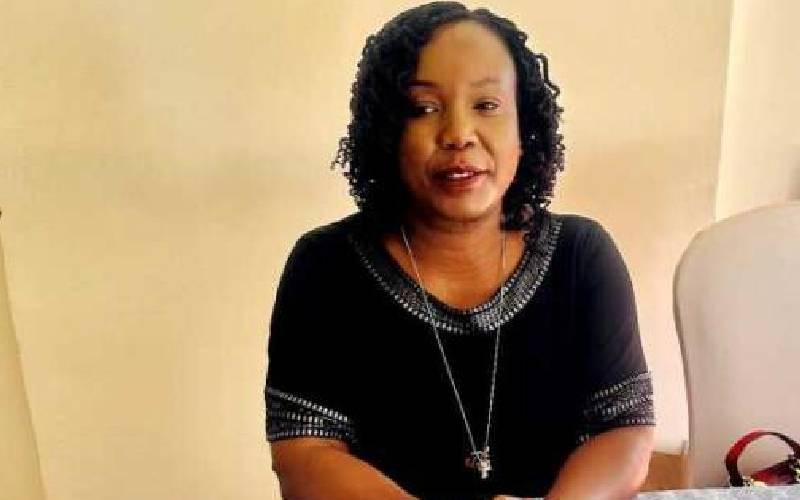Kenya is among countries with the highest number of citizens trapped in poverty rubble among the Sub-Saharan region despite posting a strong economic growth.
According to the latest research by United Nations Economic Commission for Africa (ECA) in collaboration with The Rockefeller Foundation, the levels of human exclusion due to poverty are high.

“The levels of exclusion in Kenya has declined only marginally, from 2.37 in 2003 to 2.32 in 2010,” says the report adding that the government’s effort in key sectors has not been sufficient in improving quality of life for majority of citizens.
The report, which defined human exclusion as individual’s inability to participate and benefit from growth proceeds, was based on African Social Development Index (ASDI).
According to Rockefeller Foundation Managing Director Mamadou Biteye the current levels of exclusion are denying the country opportunity to grow at full potential.
Torome Saitoti, PS in the Ministry of Planning and Statistics admitted that the country is not keeping enough quality data to help in implementing correct policies.
He however observed that with devolution, the Government is beginning to invest in targeted programmes to solve the exclusion in the country.
“This report will serve as reference when designing programmes and projects in the forthcoming third medium term plans. Without data, we may be directing resources where they are not needed,” he said.
ASDI looks at six key dimensions of citizens namely survival, health, education, employment, productive income and quality of life.
The report observed that poverty is the highest driver of human exclusion. It makes up 39.4 of the factors makes citizens feel excluded from the economy.
Other key drivers of human exclusion, according to the report are infant mortality (27.4 per cent) and under-nutrition, especially among children (23.5 per cent).
“Together, these factors accounted for nearly 90 per cent of changes in human exclusion-clearly suggesting the need for robust poverty and health interventions across the country,” says the report.
At this level, Kenya is only better than Madagascar in Eastern Africa region where poverty has a weight of 42.5 per cent in contributing to exclusion. Djiboiti ranks better at 11.2 per cent after Uganda (19.1 per cent) and Comoros (25.7 per cent). In Burundi, poverty form 36.5 per cent of reason for someone to be excluded while in Rwanda, it stands at 38.5 per cent
In what defies what is has been believed to be the case, between 2003 and 2010, the report notes that more males than females suffered the exclusion. This is despite males dominating labour market.
“Where did we leave the male child? The girl child is so advanced at the expense of boy child and this girl may be disadvantaged in getting a partner. There is need to interrogate existing empowerment policies,” said Dr Jack Zulu, Social Affairs Officer at Social Development Policy Division of ECA.
In the report which also looked at other East African countries, head of Employment and Social Protection at ECA Saurabh Sinha said that contribution of poverty to overall exclusion is declining but at a slow rate.
“Inequality levels are unacceptably high and in fact, among other regions in Sub-Saharan Africa, the East African region is the only one where inequality is increasing,” he said.
According to Dr. Zulu, most parts of Africa are experiencing a paradox of growth. “Growth is very strong and resilient and actually outperforming other regions. While the region is getting this strong growth, we have at the same time the number of people living in poverty and rising malnutrition,” said Zulu.
Last year, ECA report looked at nine economies in Africa found that Kenya had the highest informal economy with three out of four workers being in informal sector. Yesterday, Zulu said that such economy is characterised by low productivity, low skill formation and social protection is missing, exposing people to poverty.
“This clearly shows that it is not enough to talk about quantity of growth. It is the content of growth that matters. So who is growing? Who is the growth impacting? Is the growth lifting people out of poverty?” he asked.
 The Standard Group Plc is a multi-media organization with investments in media
platforms spanning newspaper print operations, television, radio broadcasting,
digital and online services. The Standard Group is recognized as a leading
multi-media house in Kenya with a key influence in matters of national and
international interest.
The Standard Group Plc is a multi-media organization with investments in media
platforms spanning newspaper print operations, television, radio broadcasting,
digital and online services. The Standard Group is recognized as a leading
multi-media house in Kenya with a key influence in matters of national and
international interest.
 The Standard Group Plc is a multi-media organization with investments in media
platforms spanning newspaper print operations, television, radio broadcasting,
digital and online services. The Standard Group is recognized as a leading
multi-media house in Kenya with a key influence in matters of national and
international interest.
The Standard Group Plc is a multi-media organization with investments in media
platforms spanning newspaper print operations, television, radio broadcasting,
digital and online services. The Standard Group is recognized as a leading
multi-media house in Kenya with a key influence in matters of national and
international interest.










